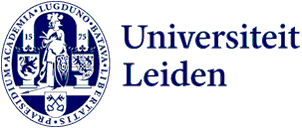Introducing: Lewis Wade
Lewis Wade has been a Postdoctoral Researcher at the Institute for History since 1 September 2023. Below he introduces himself.
It’s my pleasure to be joining the Institute for History as a Marie Skłodowska-Curie Postdoctoral Fellow, working on a project entitled The Mediterranean as a Laboratory of Globalisation: The Franco-Ottoman Cloth Trade, 1683-c.1715. Although this is a solo project, I’ve been kindly welcomed to work alongside Cátia Antunes and her team on her Vici project Exploiting the Empire of Others. I only came to Leiden for the first time in June, but I immediately felt at home, and look forward to meeting everybody within the Institute.
After growing up on the outskirts of Ipswich in the United Kingdom, I took my undergraduate degree in History at the University of Cambridge. Here, I was blessed to receive the support of several extraordinary academics, including Helen Pfeifer and Mary Laven, whose work and teaching continue to shape my research to this day. Under Helen’s supervision, I wrote my undergraduate dissertation on the letter-books of an English Levant Company factor based in Constantinople in the 1630s. This inspired a love for Ottoman-European commercial history that underpins my new project.

I joined the University of Exeter in 2017 as a PhD student on Maria Fusaro’s ERC-funded AveTransRisk project. Here, I wrote a thesis on the Parisian marine insurance market under Louis XIV, situating the little-known interventions of the Sun King’s ministers within broader historiographical debates on state formation, economic development and absolutism. My thesis was generously awarded the British Commission for Maritime History’s Boydell & Brewer Prize (2022) for the best doctoral thesis in maritime history, as well as the Association of Business Historians’ Coleman Prize (2023) for the best doctoral thesis in business history. As part of my work on the AveTransRisk project, I put together two datasets on Parisian marine insurance that are available to consult online.
In 2022, I was appointed as the Economic History Society Postan Fellow at the Institute of Historical Research in London. Here, I worked on developing my thesis into a book: Privilege, Economy and State in Old Regime France: Marine Insurance, War and the Atlantic Empire under Louis XIV is due to be published with Boydell & Brewer in October. While also preparing articles in the English Historical Review and Enterprise & Society, I started laying the foundations for my new project, spending two happy (but intense) months in the Parisian archives taking photos.
Returning to my interests as an undergraduate, but from an entirely different perspective, my new project studies the cloth industry of the Languedoc, a province in southern France, under Louis XIV. This industry was championed up to 1683 by Jean-Baptiste Colbert, the Sun King’s eminent minister, and would go on to underpin France’s flourishing trade with the Ottoman Empire in the eighteenth century. What happened between Colbert’s interventions and the golden age of Franco-Ottoman trade has received very little attention, however, despite the fact this was precisely the period when Colbert’s factories – on the verge of collapse on his death in 1683 – transformed into flourishing industrial enterprises that spurred the province’s economic success. Understanding why these factories had such a dramatic change in fortunes in the period 1683 to 1715, I argue, requires us to broaden the frame of analysis from the Franco-Ottoman cloth trade to the Franco-Asian cloth trade, thus bringing the French East India Company (Compagnie des Indes orientales)’s little-known investment in the Languedocian cloth industry into the picture. Integrating the primary sources and secondary literature on France’s commerce in the Ottoman Empire and south(east) Asia, I contend, yields an entirely new perspective on France’s global commercial strategy under Louis XIV by revealing the unexpected interconnections of these ostensibly detached markets. I look forward to developing my thoughts and findings during my time at Leiden, with the support and feedback of the Institute’s members.
